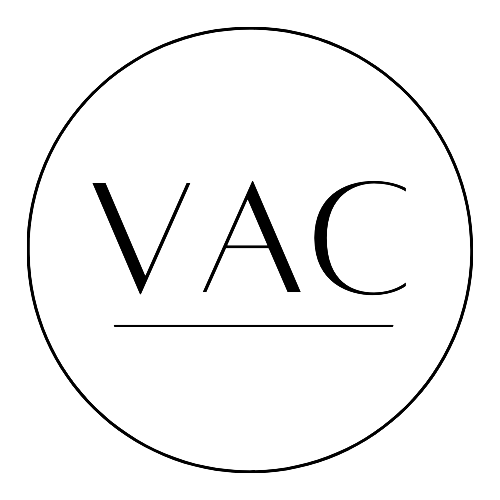Lisa Kellner: Finding Inspiration in the Simple Things
Lisner Kellner finds inspiration for her absract paintings in her daily life. Kellner’s bright hues and color-blocked creations are a culmination of the world around her.
By reducing her ideas and experiences down into an abstract composition, Kellner connects with her viewers in both a physical and emotional space.
How and when did you know you wanted to be an artist?
I don't think I was ever NOT an artist. It was just always something that was part of me. I would sit in the corner of my bedroom and just draw what I saw for hours. In highschool, I had a wonderful art teacher, Ms. Gordon, who really challenged me but also gave me the guidance and structure I needed. She would let me have the art room during my lunch time to paint. This was the first time I ever tackled oil paints. It was so great to have the entire space all to myself because I didn't have to worry about what others thought about the painting. My parents traveled a lot with and without me so there were many beautiful objects from their travels in our home. I understood looking at these, the value of making something with your hands and putting it into the world. When I was eleven my mother took me to New York city and we stayed in her friend's apartment that was a short walk to both the Whitney and MOMA. I was allowed to walk there myself - at 11! - which I did many times that week. I would spend hours looking at the art in these museums. So I think it is a culmination of all of these that ingrained in me the need to be an artist.
Where do you find inspiration for your work?
I find inspiration from the simple things in day to day life and immersing myself in nature. It might be the angle of a shadow under a chair on our porch or a rotting fallen tree that has caused a whole new eco system of growth to occur. I was always most comfortable in nature studying the shapes of the trees or the color of moss, flowers and leaves. I could spend hours doing so. While my work is not a literal translation of what I encounter, it all feeds my subconscious and filters back into the work somehow.
What themes do you explore in your work?
My paintings and constructions explore the emotional space of human nature as well as the physical space of things. I'm interested in reducing lived experience down to its essence and seeing whether it can evoke something from the viewer. Though the work is abstract, it is anchored in the real. The slight angle of a shape, a series of lines or a large swath of a particular lemon yellow can be communicators of emotion, thought and how one feels. My work is concerned with activating this space both in the painting and in the viewer.
How do you start a new piece?
I start by cleaning and organizing my studio so that the space works best for the particular piece I'm working on. Then I will stretch the canvases and apply layers of gesso, sanding in between. This acts as sort of a clearing of the mind for me; a kind of warm up or getting in the mood. Once dry, I just start freely painting with no thought about color, composition or whether I am doing it right. Instead, I work intuitively responding directly to the work in front of me. I like to get the entire canvas covered before I start making decisions about where to go with it. I want to make sure that I'm not forcing the work. Instead, my intention is to collaborate with the work. If I'm overthinking, it shows! I find that this freeform painting ends up informing the work more than I could if I "planned" it.
Which experiences have impacted your work as an artist most?
Living abroad as a kid impacted my understanding of multiple cultures and how the world works. It gave me a greater perspective on what it means to be alive that I might not have had if I had just grown up in one place. I had to learn how to adapt to new situations quickly. This feeds my experimental nature as an artist! I also learned how to be a good observer which serves my work very well now!
What advice do you have for newer artists just getting started in their career?
Make sure you are really engaging in the world in a way that feels authentic to you. Get to know who you are and let that drive your work instead of what others tell you. Most of all, trust the process and allow yourself to fail; it will teach you everything!
What are your future goals and aspirations as an artist?
I'm a pretty driven person and have many goals for my work. However, these are not my focus. The priority for me is that I make career and artistic decisions based not on ego or approval but on who I truly am and how I want to communicate through my work. I am excited to see where this work takes me and how I can keep challenging myself.
Instagram: @lisakellnerstudio
Website: www.lisakellner.com









